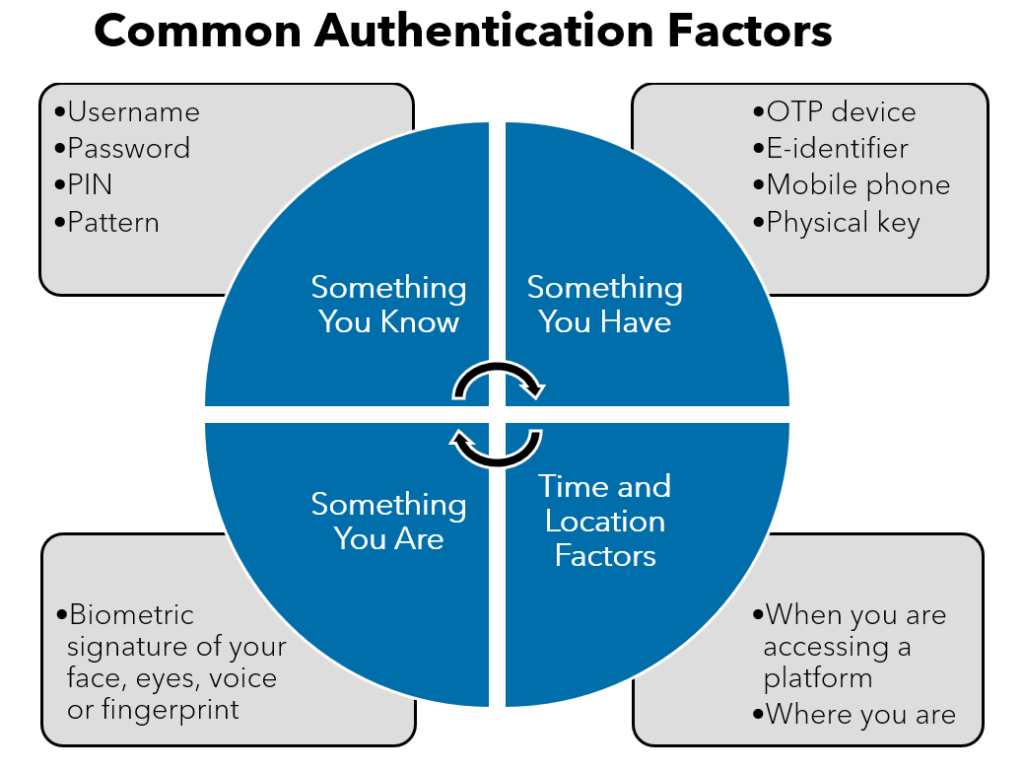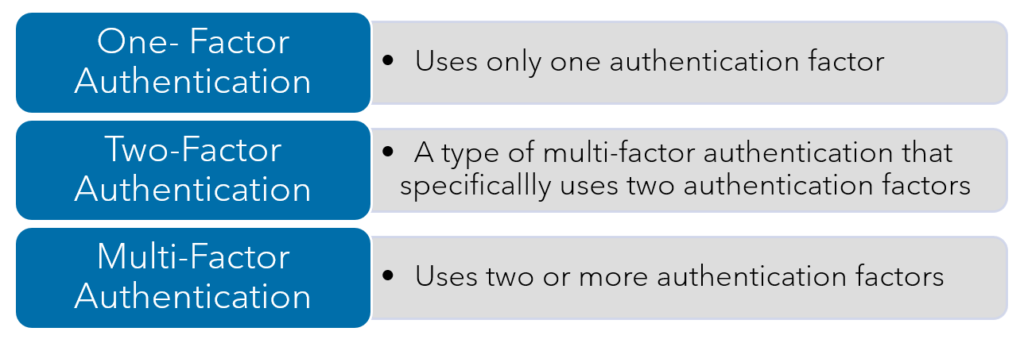What are the Benefits of Multi-Factor Authentication? [How It Works Now and What the Future May Hold]

As technology has advanced, password requirements have become more complex across platforms. But single username and password combinations are no longer enough to keep hackers away.
In order to protect your business from today’s cyber threats, it’s important to consider multi-factor authentication technology for your organization.
There are strong benefits of multi-factor authentication for businesses willing to make the investment in their organization’s security. Here, we’ve outlined the basics of what it is, how it works, what businesses stand to gain and what the future of multi-factor authentication may hold.
What are Authentication Factors?
Authentication factors are online standards used to prove someone’s identity. Authentications factors are especially valuable when your business wants to confirm that the people logging into your company’s systems are your users or employees—not uninvited hackers.
The following are some of the most common authentication factors:
- Something you know – your username, password, PIN or pattern
- Something you have – a one-time-password (OTP) device, e-identifier, a mobile phone or a physical key
- Something you are – a biometric signature such as your face, eyes, voice or fingerprint
- Time and location factors

What is Multi-Factor Authentication?
A typical login includes a username and a password (one-factor authentication). Multi-factor authentication is an electronic authentication method that requires two or more authentication factors to prove identity.
Two-factor authentication (also known as 2FA), one of the most common forms of multi-factor authentication, involves using passwords and a second token.
If you’ve ever logged into an online account and have been asked to send a SMS code to your phone or secondary email address to verify your identity, you’ve experienced multi-factor authentication.

What are the Benefits of Multi-Factor Authentication?
The ultimate benefit of multi-factor authentication for a business is heightened security protocols to protect your data.
Multi-factor authentication exponentially increases security on a device because it requires users (and any potential hackers) to go through multiple identifiers, making it much harder than knowing a simple username and password combination to access a platform or network.
Phishing attacks and data breaches become much more complicated once a second factor is introduced, which means that it’s much more difficult for a hacker to come uninvited into your company’s data.
As long as a password is stored in a server, it can be hacked, which is why many businesses have introduced multi-factor authentication or two-factor authentication to reduce the risk created by a single username and password login.
Multi-factor authentication is more effective than a single identifier, like a password, because it provides an additional safeguard even if a password is compromised.
For a company that has experienced a cyber breach or attack, hindsight often shows that the benefits of multi-factor authentication are worth the up-front investment.
What’s the Future of Multi-Factor Authentication?
While multi-factor authentication offers great benefits by increasing security, it does require at least one other step to log into a system. This is extremely beneficial when you’re trying to keep unwelcome hackers out of your company’s platforms and systems, but it can be cumbersome for your users and employees.
Unfortunately, the inconvenience of the extra step leads some users to deactivate multi-factor authentication, which, of course, defeats the purpose and benefits of instituting it.
That’s why the future of multi-factor authentication will likely adapt to provide a more user-friendly and convenient experience through methods like biometrics. Recent advancements in biometric technology lead toward possibilities for businesses like introducing fingerprint, iris and face scanners with more accuracy and at a lower cost.
For many companies, an opportunity like this could allow companies to replace passwords by having users bring their own devices that already use biometric methods—thereby increasing convenience for users without compromising on security.
In the future of multi-factor authentication, passwords may even become obsolete to make way for more secure methods of authorization.
Multi-factor authentication technology is always advancing, so businesses should continuously be evaluating and introducing newer methods of multi-factor authentication to best protect your data and employees.
Learn More about the Benefits of Multi-Factor Authentication and Connect with an Advisor
While single username and password logins or two-factor authentication methods are still standard for many businesses, it’s important to fully consider your company’s security needs when deciding the best multi-factor authentication option is for your business.
At the end of the day, businesses that utilize multi-factor authentication have the benefit of increased security—and the need for increased security has never been greater than it is now.
If you’re ready to consider the benefits of multi-factor authentication and discuss which factors may be the best fit for your specific organization, contact your Warren Averett Technology Group consultant today or ask a member of our team reach out to you
